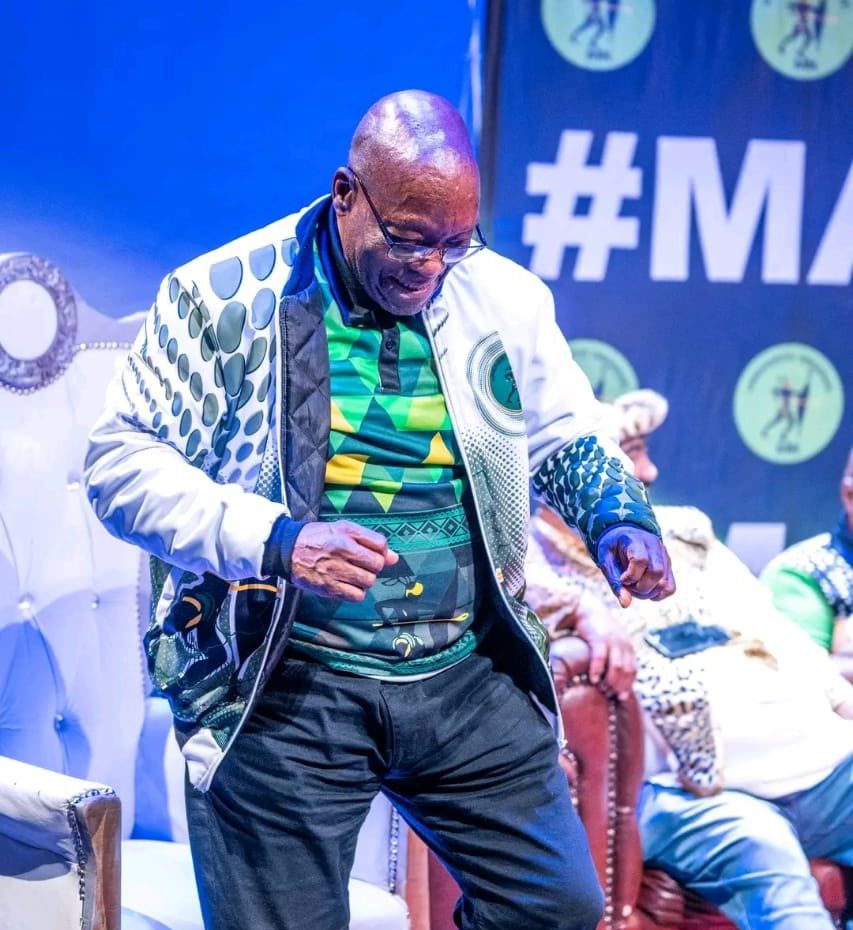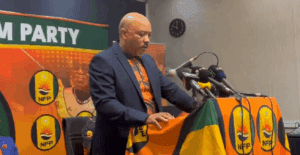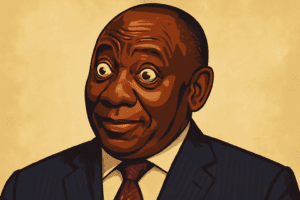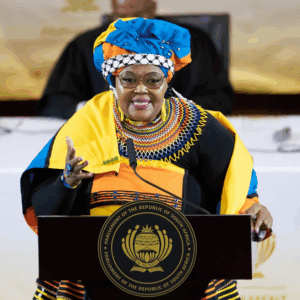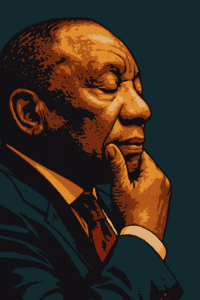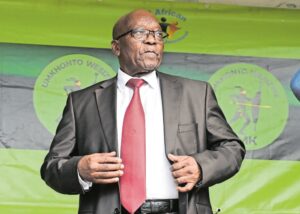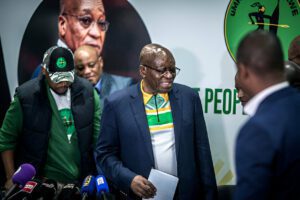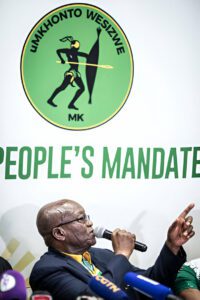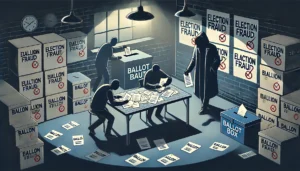As election results continue to be counted, early indications suggest that Jacob Zuma’s emerging MK party is making substantial gains, challenging the traditional strongholds of the ANC, IFP, and EFF in KwaZulu-Natal. The MK party’s impressive performance is poised to shake up the provincial political landscape and potentially diminish the ANC’s majority.
Initial results from areas historically loyal to the ANC show the MK party leading by over five percent. Meanwhile, the IFP is trailing in third place and the DA in fourth.
In the Western Cape, Gayton McKenzie’s Patriotic Alliance is performing well, eroding the support base of the DA.
Television news channel eNCA forecasts that the ANC will maintain control over the Eastern Cape and Northern Cape.
The Council for Scientific and Industrial Research (CSIR) has predicted a significant 15% drop for the ANC in the final election results. Professor Pravesh Debba of the CSIR stated that their model anticipates the ANC securing 42% of the vote, the DA 22%, the MK party 12.8%, and the EFF 9%.
At the time of this projection, the ANC had 41.5% of the vote, the DA 28.18%, the EFF 7.7%, the MK party 7%, and the PA under 2%. The PA is expected to decline further.
The CSIR’s prediction was made with 8.5% of the votes counted. In the 2019 elections, their forecast was only 2% off for the major established parties. However, forecasting for new parties like the MK is challenging due to a lack of historical data. Professor Debba mentioned that the projection for the MK could be exaggerated due to this limitation.
Reflecting on the difficulty of predicting for new parties, he cited the EFF’s first election in 2014, where the model predicted 3-4%, but the EFF secured 8.39%.
The CSIR has been accurately predicting election outcomes since 1999.
Most votes are being reported from smaller voting districts across the country. At 10.02% of the count, the ANC was tracking below 50% at around 42% with just under 300,000 votes. The DA held steady in second place with 26.34% or 207,779 votes, the EFF at 8.1% or 63,932 votes, the MK party at 7.6% or 60,115 votes, and the PA at 4.9% or 38,805 votes.
The MK party has criticized the Independent Electoral Commission (IEC) for “mismanaging the ongoing electoral process by undermining the constitutional rights of all South Africans to freely choose their government.” They argue that the commission “showed a lack of competence by ignoring to communicate critical changes to the Electoral Act, specifically Section 24,” concerning the requirement for voters to vote in their registered areas.
MK party calls for the resignation of Janet Love over the mismanagement and chaos that ensued throughout the election process and election day. pic.twitter.com/OuSNKCYuCW
— uMkhonto WeSizwe Party (@MkhontoweSizwex) May 30, 2024
Muzi Ntshingila, head of elections for the MK party, stated,
“This change was poorly communicated merely days before the elections, leading to widespread confusion and disenchantment among the electorate.”
He further added,
“Such missteps not only compromise the electoral process but also frustrated citizens whose primary concern is a change towards a better life from the pains of the (President Cyril) Ramaphosa-ANC.”
The MK party has called for the resignation of the IEC’s top management, accusing them of bringing the organization into disrepute.
Thousands of voters across the nation were still in queues after midnight on Thursday, following the May 29 elections, which saw extensive lines, particularly in the metropolitan areas of Durban, Johannesburg, and Cape Town.
These significant delays were attributed to persistent glitches in the voter management devices (VMDs) at several municipalities, causing prolonged waiting times as voters queued to cast their ballots.

